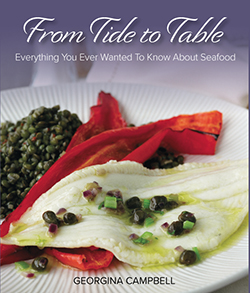Insider View - on Doing Things Differently
 Lucy Madden on doing things differently these days in the gardens at Hilton Park.
Lucy Madden on doing things differently these days in the gardens at Hilton Park.
In a crepuscular gloom I am trying to plant onions while listening with (hard to conceal) irritation to a lecture, delivered in barely understandable Pidgin English, on – of all things – Pythagoras. It’s only necessary to show very intermittent interest as the speaker, a mathematics graduate from Chile, has enough enthusiasm about his subject for both of us.
Earlier in the day I had to listen to a dissertation on pig-breeding, almost indecipherable, from another Spanish speaker anxious to practise his language skills. The previous day precious gardening time had been taken up by the reading of a story written for children by the Chilean mathematician; he read to me, sotto voce, and at a snail’s pace, perhaps because the subject was a snail.
Welcome to the world of woofers. My world. Or so it has become since the ancient practice of hiring gardeners and grounds men in exchange for a wage has become so undoable. For years circumstances made it possible for us to employ Irish people to work in exchange for wages.
Alas, changing times have for the moment put a halt to that and so into the spotlight has stepped the Workaway. The woofer – or one who exchanges five hours of labour daily for the benefits of a cultural experience with bed and meals thrown in, (but no money being exchanged) – is attaining (and here my evidence is only empirical) a certain ubiquity.
I have even been told that in certain parts of the country a code for the treatment of woofers is being circulated; in other words, one mustn’t ‘spoil the market’ by being too friendly with the lads and lassies who for a mutually beneficial experience, throw away caution to arrive on our doorsteps from places all over the globe.
This ‘how to treat a woofer’ list is said to include instructions on restricting the time spent eating with the family as in ‘lunch only, breakfast and dinner to be consumed apart’. It recommends, apparently, that all social intercourse must cease after 6 pm with the woofers restricted to their own areas. If it sounds rather cheerless, then it is.
My view is that if you accept a stranger into your home you are committed to treat the person as a member of your own family, even when you are stretched to the limit of endurance (and this is a personal experience) by sharing your table with a person wearing a black wife-beaters vest with visible underarm growth.
Tolerance in these matters is easier said than done when one is some decades away from the lottery of youthful shared space; my generation just did not have the experiences of the gap year that brings the wandering gapper, presumably, into situations of intimacy with strangers in foreign lands. I have had no previous familiarity with the underwear of people of the Mediterranean that today festoons our washing line nor am I used to finding the bathroom door locked when I want a bath and from within the sounds of splashing is a background to the Australian news relayed from a computer.
Yes, I have had a privileged life this far, and there is much to be gained from the company of strangers, but you do need to cultivate a relaxed attitude when, as we do, three generations and a handful of linguistically challenged visitors share the same roof.
For some of the family the experience can have unexpected consequences: my 7 year old grandson, familiar with hirsute Spaniards, met an ageing and paying English guest on the stairs and, sternly contemplating his facial hair (that curious sprouting on the cheekbones once known as ‘buggers’ grips) asked “Are you Spanish?”
Why these people, the woofers, submit themselves to the vagaries and possible cruelties of strangers is another matter. It seems to me that many of them have been damaged by experiences back home, they mostly have a story that eventually is told and it involves escaping from something. Others are just looking to improve their language skills or learn a little about another country.
With a few exceptions, we have been privileged to meet and hopefully make lifelong friends with some delightful young people. We have also in recent years, through their skills, been able to maintain a large garden and amenity grounds, which would otherwise have reverted to jungle, and if it means making a few sacrifices, then overwhelmingly it is worth it.
Besides, if the cosmopolitan atmosphere in the house ever gets too much for this old grump, she can take herself off and do a workaway in some foreign part, and far away.
 Together with her husband Johnny & family, Lucy Madden runs their magnificent 18th century mansion, Hilton Park, Clones, Co Monaghan as a country house which is open to private guests, groups, small weddings and conferences. The restored formal gardens are also open by arrangement. Lucy is a keen organic gardener and also a member of the Irish Food Writers Guild.
Together with her husband Johnny & family, Lucy Madden runs their magnificent 18th century mansion, Hilton Park, Clones, Co Monaghan as a country house which is open to private guests, groups, small weddings and conferences. The restored formal gardens are also open by arrangement. Lucy is a keen organic gardener and also a member of the Irish Food Writers Guild.





There are currently no comments
Leave a comment
Not a member? Register for your free membership now!
Or leave a comment by logging in with: